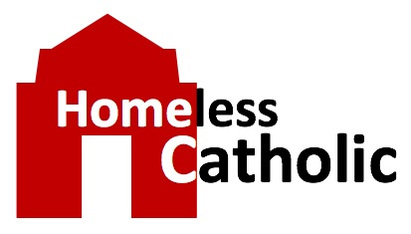Where did you come from?
The fifth chapter of Matthew’s Gospel begins with the Beatitudes; and this beginning of the Sermon on the Mount continues through the end of chapter seven. When we read or hear these things we are astonished.
We are tempted to ask “And just what planet did you come from?”
Reflection - Charters
http://www.usccb.org/bible/readings/030720.cfm
Deuteronomy 26:16-19
Matthew 5:43-48
When we hear Jesus’ words in this Gospel text, we might be tempted to ask: “And just what planet did you come from?” Then again, if we back up to what Moses said to the people in his day (as recorded in the passage from Deuteronomy), it is quite possible to imagine them responding with the same question: “And just what planet did you come from?”
The Law promulgated by Moses was intended to create a society that would be unique in all the world. Not only would it have but one and the same God even if the people moved to a new place, it would also incorporate civilizing elements that would be atypical to the age. We’ve all heard the dictum: ‘an eye for an eye, and a tooth for a tooth.’ But we seldom reflect on the fact that this directive was counter-intuitive to a people whose customs and practices allowed that an injury might be revenged with the infliction of utter destruction.
The society that was to be created was the Covenant Community of Israel. If these people were to become a nation and exist in a Covenant relationship with the Creator of the universe then “you are to walk in his ways and observe his statutes, commandments and decrees, and to hearken to his voice.” This people, in turn, were to “be a people sacred to the LORD, your God.”
This passage from the Old Testament, along others that accompany it, might well be called the Charter of the Covenant for it both creates and defines the nation of Israel.
The fifth chapter of Matthew’s Gospel begins with the Beatitudes; and this beginning of the Sermon on the Mount continues through the end of chapter seven. At the end of that chapter we find the people who had gathered and heard his words were astonished because Jesus “taught them as one who had authority.” (Mathew 7:29) This is the sermon where Jesus tells the people they are the salt of the earth and the light of the world. This is the sermon in which updates are given for the Law of Moses concerning anger, adultery, divorce, swearing, retaliation and love. This is the sermon that instructs on proper behavior in spiritual practices. This is the sermon that instructs on judging and seeking. This is the sermon where we are called to be perfect. This is the Charter of the Kingdom. It creates and defines those who would be members.
When we read or hear these things we are astonished. We are tempted to ask “And just what planet did you come from?” And our question stems, not so much from an unwillingness to observe these practices, but from our experiences of failure in attempting to observe them. Yes! We sincerely pray: Thy Kingdom Come. Yes! This is the Charter of the Kingdom? Yes! We seek to be part of that Kingdom. And Yes! We can’t do it!
The Law as described by Jesus was intended to create a society that would be unique in all the world. Not just a society that would be more gentle and kind, not just a society that would only worship the true God, not just a society that would live in a Covenant relationship with God. Rather it was intended to form a society where God is literally Emmanuel. He is with us — day in and day out, in good times and in bad, in our joys and our sorrows, in our human burdens and in our insignificant irritations. In such an arrangement it was not and is not illogical for God to ask us to do what we regard as impossible. If he is with us all things are possible.

